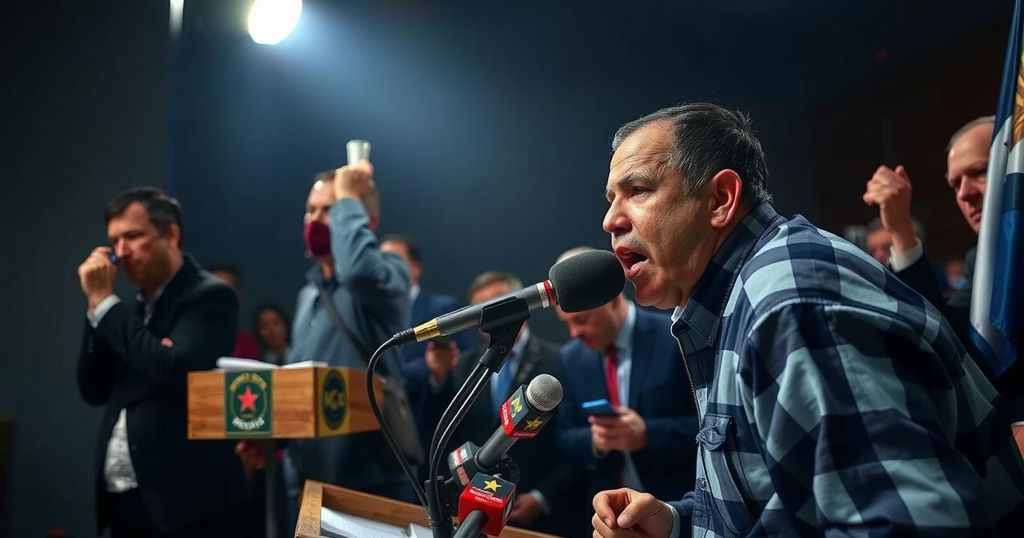Uruguay’s Presidential Runoff: A Competitive Battle for Leadership

Uruguay’s presidential runoff election on Sunday features a tight race between Álvaro Delgado and Yamandú Orsi after no candidate achieved a majority in the first round. The election highlights voter apathy, social issues, and differing economic proposals as key factors influencing the electorate. Each candidate represents a unique vision for the future amidst concerns over crime and governance.
Uruguay’s presidential runoff election will unfold this Sunday as voters head back to the polls to finalize their choice between the conservative Álvaro Delgado and the leftist Yamandú Orsi. Neither candidate secured a majority during the first round held on October 27, resulting in a competitive run-off. While Orsi, representing the Broad Front coalition, garnered 44% of the total votes, Delgado’s National Party secured only 27%. However, additional support from allied conservative parties positioned Delgado as a strong contender in this decisive second election.
The election is characterized by its unexpectedly contested nature, diverging from previous perceptions of tranquility in Uruguayan politics. Analysts identify voter apathy as a significant factor due to consistent consensus on major issues such as taxation and social spending. This absence of polarization stands in stark contrast to electoral dynamics observed in other regions, particularly in the United States, where candidates often frame their opponents as existential threats.
Safety and increasing violent crime are pivotal concerns influencing voter sentiment, with both candidates addressing this escalating issue. ÁLvaro Delgado’s campaign leverages the current administration’s record while ensuring continuity in pro-business policies, whereas Yamandú Orsi seeks to innovate by proposing a ‘new left’ approach. His plans include tax incentives aimed at attracting investments and targeted reforms within the agricultural sector, although he refrains from advocating drastic alterations to pension structures, cognizant of the pre-existing fiscal constraints.
As the campaigns proceed, the candidates are not only shaping their narratives in light of current histories but also suggesting a broader vision for Uruguay’s democratic resilience. The present electoral scenario exemplifies a crucial moment in Uruguayan politics, with each candidate embodying differing perspectives on governance and the country’s socio-economic future.
Uruguay’s political landscape has recently transformed from an unremarkable election season to a highly competitive race between Álvaro Delgado and Yamandú Orsi. Following the failure of either candidate to achieve a majority in the initial voting round, this runoff becomes essential in determining the next president. The previous governing coalition, led by President Luis Lacalle Pou, created landmark social policies which now influence the direction of the political dialogue. The public’s response to issues such as taxation, social safety nets, and increasing crime rates plays a critical role throughout this electoral process, signifying the importance of voter engagement and the complexities of contemporary Uruguayan governance.
In conclusion, Uruguay’s presidential runoff promises to be a pivotal event that may redefine the country’s political trajectory. With both candidates presenting clear yet contrasting visions amidst a backdrop of increasing voter dissatisfaction and socio-economic challenges, the outcome will have significant ramifications for the future of Uruguayan democracy and governance. The absence of polarizing rhetoric further exemplifies Uruguay’s stability as a democratic nation, inviting optimism regardless of the election’s outcome.
Original Source: abcnews.go.com







